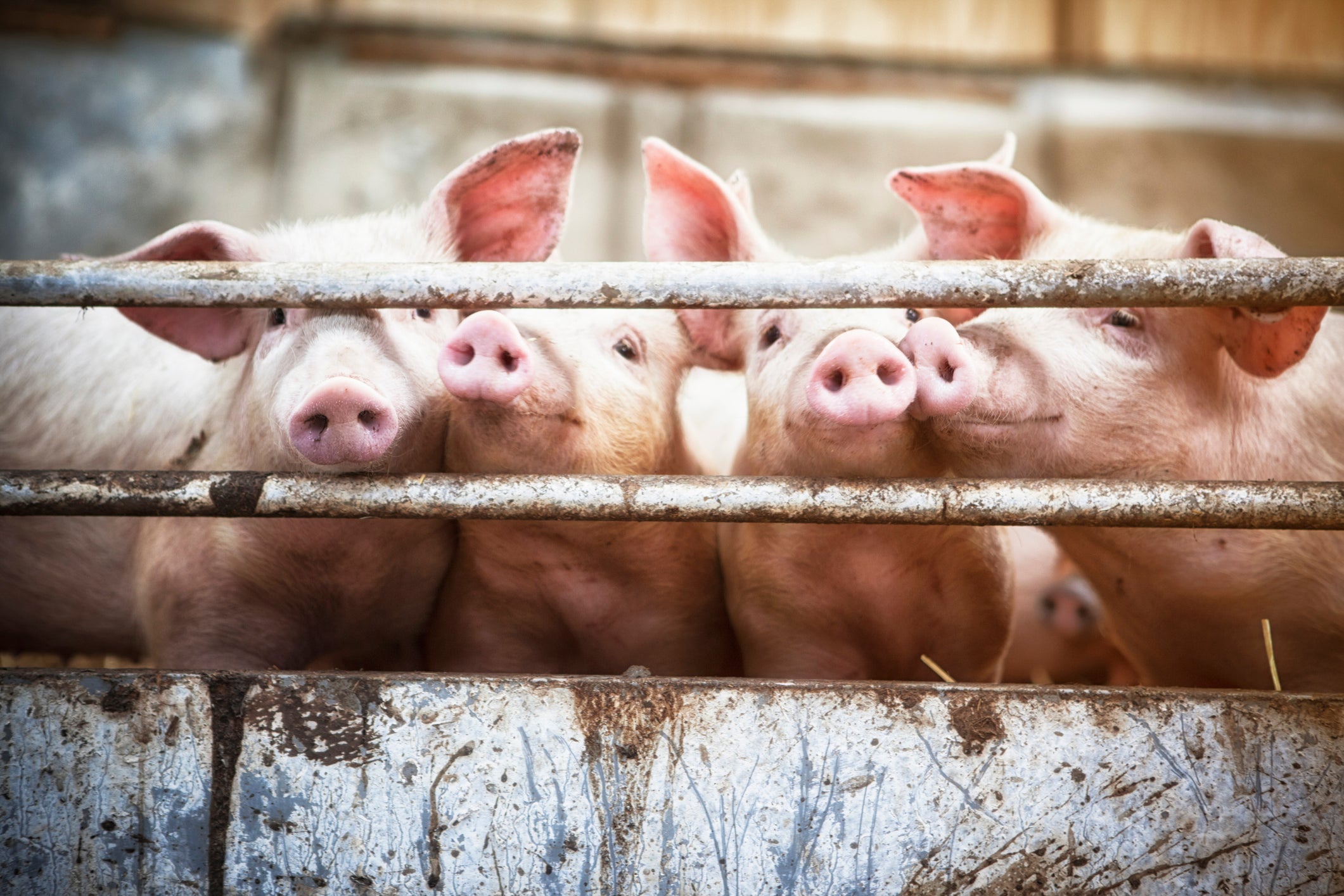The Independent's journalism is supported by our readers. When you purchase through links on our site, we may earn commission.
How your brain wrestles with the ethics of eating animals
Despite the fact that meat comes wrapped up in climate, health and cruelty concerns, many of us happily continue with our carnivorous habits. Sarah Gradidge and Magdalena Zawisza offer some answers as to why

Your support helps us to tell the story
From reproductive rights to climate change to Big Tech, The Independent is on the ground when the story is developing. Whether it's investigating the financials of Elon Musk's pro-Trump PAC or producing our latest documentary, 'The A Word', which shines a light on the American women fighting for reproductive rights, we know how important it is to parse out the facts from the messaging.
At such a critical moment in US history, we need reporters on the ground. Your donation allows us to keep sending journalists to speak to both sides of the story.
The Independent is trusted by Americans across the entire political spectrum. And unlike many other quality news outlets, we choose not to lock Americans out of our reporting and analysis with paywalls. We believe quality journalism should be available to everyone, paid for by those who can afford it.
Your support makes all the difference.Most people eat meat and dairy with, apparently, little thought of the consequences. Yet those consequences are planetary in scale. Raising livestock for meat, eggs and milk accounts for roughly 14 per cent of all human-made greenhouse gas emissions. Beef production is the biggest driver of forest loss within agriculture. The meat industry has been linked to a host of other environmental harms, including water pollution.
Eating too much meat can be bad for your health too, particularly red and processed meat, which is thought to increase your risk of developing colorectal cancer. Feeding the world’s appetite for meat costs the lives of billions of animals a year, and animal welfare is a concern on farms worldwide, with pigs, cows and chickens often subject to overcrowding, open wounds and disease.
Animal welfare laws in the UK compare poorly with standards set by organisations such as the RSPCA. Chickens are forced to grow much faster than they naturally would and become ill as a result, while narrow crates and tying posts restrict the movements of pigs and cows. In extreme cases, captive pigs have been found engaging in cannibalism.
In what is no doubt a response to these concerns, veganism is on the rise. In the UK, the number of people eating a plant-based diet increased fourfold between 2014 and 2019. However, vegans still only make up about one per cent of the UK population and vegetarians just two per cent. On a global scale, meat consumption is increasing. So why do people keep eating meat, despite a widespread awareness of the downsides?
Psychologists have some answers.
The meat paradox
Our recent paper reviewed 73 articles on a phenomenon called “the meat paradox” – the mental contradiction that helps devoted animal lovers continue eating animals.
This moral dilemma can cause people psychological discomfort, and our review revealed several triggers. For instance, you may relate to the jarring experience of realising for the first time that the meat on your plate came from an animal.
After being reminded that the meat on your plate comes from an animal, you may try to forget its animal origins. People are more willing to eat meat when its animal origins are obscured
Meat-eating has consequences for how we interact with and perceive animals in later life, too. In a 2010 study, participants who ate beef were less likely to view animals as worthy of moral concern. And the more committed someone is to eating meat, the more likely they are to avoid information about the positive qualities of animals raised for food.
The discomfort people may feel about eating meat presents them with a stark choice. Either remove the moral dilemma by giving up meat, or continue eating meat and morally disengage. Moral disengagement is when we choose not to act on our moral values. Our review highlighted several strategies that people use to maintain this moral disengagement.
After being reminded that the meat on your plate comes from an animal, some may try to forget its animal origins. People are more willing to eat meat when its animal origins are obscured, such as by calling meat beef instead of cow. Believing that meat is necessary for good health, that it is socially normal, natural and just too delicious to give up can reduce the guilt people may feel when eating meat. Giving up meat can seem difficult and so people may turn to these strategies to reconcile conflicting feelings.
Overcoming moral disengagement
If you would like to reduce your own meat consumption, psychological research has a few recommendations.
- Recognise and remember how reducing your meat consumption aligns with your values.
- Always keep animals in mind. Allow yourself to humanise them by considering their capacity for emotion, for example.
- Accept that changing your diet may be a gradual process.
If you want to encourage others to cut down on meat-eating, you can:
- Avoid blaming them for their meat consumption. This only makes people more resistant to vegetarianism and veganism. Instead, approach these tricky interactions with compassion.
- Avoid telling other people what to do. Let them make up their own minds.
- Humanise animals by encouraging people to view them instead as friends and not food.
Sarah Gradidge is a PhD Candidate in Psychology at Anglia Ruskin University. Magdalena Zawisza is an associate professor/reader in gender and advertising psychology at Anglia Ruskin University. This article first appeared on The Conversation.




Join our commenting forum
Join thought-provoking conversations, follow other Independent readers and see their replies
Comments